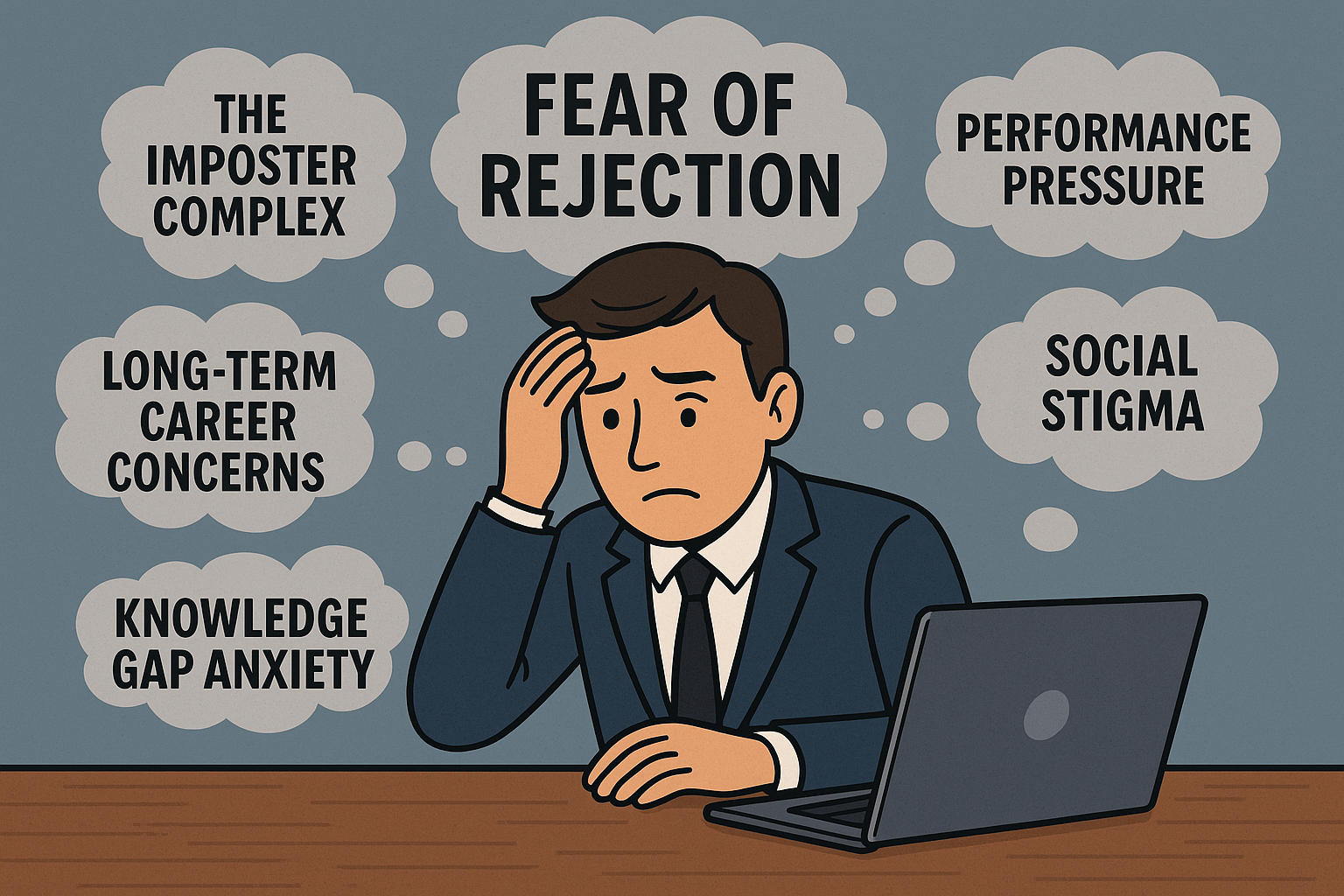Sales is often portrayed as a career for the fearless—confident go-getters who thrive on competition and never take “no” for an answer. But here’s the truth that nobody talks about: even the most successful salespeople battle fears and doubts every single day.
If you’re in sales and struggling with anxiety, self-doubt, or fear, you’re not alone. These feelings are not only normal—they’re practically universal in our profession. Let’s shine a light on the fears that keep us up at night and explore how acknowledging them is the first step toward overcoming them.
The Big One: Fear of Rejection
Let’s start with the obvious elephant in the room. Fear of rejection isn’t just about hearing “no”—it’s about what that “no” represents in our minds. When a prospect hangs up on us or dismisses our pitch, our brain doesn’t just register it as a business decision. It feels personal.
This fear manifests in countless ways: hesitating before making that cold call, over-preparing for meetings to avoid potential failure, or even avoiding challenging prospects altogether. The irony? The more we fear rejection, the more likely we are to come across as desperate or inauthentic, actually increasing our chances of being rejected.
The Imposter Complex
“What if they find out I don’t actually know what I’m talking about?” This thought haunts more salespeople than you might imagine. Imposter syndrome in sales is particularly brutal because we’re constantly being tested—by prospects, by competitors, and by our own performance metrics.
You might close a big deal and instead of celebrating, find yourself thinking it was just luck. Or worry that you’ll be exposed when a prospect asks a technical question you can’t answer. This self-doubt can be paralyzing, preventing you from pursuing opportunities that are well within your capabilities.
The Performance Pressure Trap
Sales comes with built-in anxiety: quotas, commissions, and the constant pressure to perform. This creates a unique type of fear—the fear of financial instability mixed with professional inadequacy. Missing your numbers doesn’t just affect your paycheck; it feels like a referendum on your worth as a professional.
This pressure often leads to a vicious cycle. The more anxious you become about your pipeline, the more desperate you seem to prospects. The more desperate you seem, the harder it becomes to close deals. And the cycle continues.
The Social Stigma Struggle
Let’s face it—sales doesn’t always have the best reputation. Many of us carry the fear of being seen as pushy, manipulative, or dishonest. This is especially challenging when you genuinely want to help your clients but worry about perpetuating negative stereotypes.
This fear can make you second-guess your approach, over-apologize for reaching out, or fail to ask for the sale when the moment is right. You might find yourself saying things like “I don’t want to be pushy, but…” which immediately undermines your credibility.
The Knowledge Gap Anxiety
In today’s fast-paced business environment, products evolve quickly, new competitors emerge, and industry landscapes shift constantly. This creates a persistent anxiety about staying current and relevant. What if a prospect knows more about your product than you do? What if they ask about a feature you’ve never heard of?
This fear often leads to analysis paralysis—spending so much time trying to learn everything that you never feel ready to actually sell anything.
The Competence Questioning
Even experienced salespeople sometimes wonder: “Am I actually good at this, or have I just been lucky?” This doubt becomes especially pronounced during slow periods or after losing a deal you were confident about.
The uncertainty can be maddening. Unlike many other professions where success is more predictable, sales involves so many variables outside your control that it’s easy to question whether your wins are skill or chance.
The Long-term Career Concerns
Many salespeople worry about their professional future. Is sales a “real” career, or just a stepping stone? Are your skills transferable? What happens when you burn out from the constant pressure and rejection?
These concerns can create a background anxiety that affects your daily performance, making you question not just individual deals, but your entire career path.
Moving Forward: Acknowledgment Is the First Step
Here’s what I’ve learned after years in sales: these fears don’t disqualify you from success—they’re actually signs that you care about doing good work. The most successful salespeople aren’t fearless; they’re people who feel the fear and act anyway.
Acknowledging these fears is liberating. When you stop pretending they don’t exist, you can start developing strategies to manage them. You can reframe rejection as redirection, view learning opportunities as competitive advantages, and understand that authenticity often trumps perfection.
Remember, your prospects aren’t looking for a robot who has all the answers. They’re looking for a trusted advisor who understands their challenges and can help solve their problems. Sometimes, admitting you don’t know something and promising to find out is exactly what builds the trust that leads to a sale.
The Bottom Line
Sales is tough—emotionally, mentally, and professionally. But it’s also rewarding, dynamic, and full of opportunities for those who persist. Your fears are valid, your doubts are normal, and your success doesn’t depend on eliminating them entirely.
It depends on showing up anyway.
The next time you feel that familiar knot in your stomach before a big call or presentation, remember: every successful salesperson has felt exactly the same way. The difference isn’t in the absence of fear—it’s in the courage to act despite it.
What fears resonate most with you? How do you push through them? Share your experiences in the comments below—sometimes knowing we’re not alone in our struggles is the best remedy of all.

